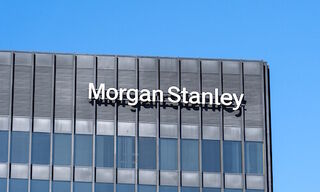Hong Kong's fund managers, concerned about the unrest in Hong Kong, are asking questions about opening offices in Singapore, say consultants.
Signs are in place that Hong Kong's firms are looking to shift some of their activities to Singapore, partly caused by the protests. Examples include the shifting of a private equity event to Singapore, Hong Kong parents looking out for Singapore schools, and family office advisers getting calls from clients wanting to move.
Global valuation and corporate finance advisor Duff & Phelps have seen a rise in applications from Hong Kong asset managers to open offices in Singapore and apply licenses to do regulated businesses. Apart from advisory firms, some law firms are also seeing a surge in interest.
Surge In Queries
«We have not seen a sudden surge of interest of this nature from one particular city except during the global financial crisis,» said Tan Woon Hum, who was quoted in a «Bloomberg» report. Tan, who is partner & head of trust, asset & wealth management practice at Shook Lin & Bok LLP, has seen a «surge in inquiries and actual instructions» from Hong Kong firms looking to set up fund management companies in Singapore since August.
Even before the protests, there had been interests in Singapore from funds in various cities for a variety of reasons, according to observers «In the past half-year, the total number of fund management companies licensed and registered by the MAS grew by almost 9 percent from 820 as at 31 May 2019 to 892 as at 8 Jan 2020,» a spokesperson for the Monetary Authority of Singapore said. This compared with 780 managers as of Dec. 31, 2018, the spokesperson added.
Contingency Plans
Hong Kong funds are putting contingency plans in place and some of them have asked their staff to spend time in Singapore during «crazy» weeks to minimize disruption, according to Benjamin Quinlan, chief executive officer of financial services consultancy Quinlan & Associates in Hong Kong.
Hong Kong firms that are looking to set up offices in recent months are generally of the size where they would look to have another office in Asia, and the protests in Hong Kong accelerate the process, notes Sin Yee Koh, director of compliance & regulatory consulting at Duff & Phelps. «The protests are a factor that accelerates the decision to open a Singapore office but are not the sole driver of Hong Kong firms applying to do regulated business in Singapore,» said Koh.
What Happens After 2047?
A big question hanging over Hong Kong is its regulatory future after 2047 when the system under which China allows the city a «high degree of autonomy» is due to expire. While Hong Kong is a capitalist city, the Chinese government has long kept a tight grip on money flowing in and out of the country.
«If fund managers or investors perceive a change in the rule of law in Hong Kong or increase of regulatory pressure, it might create uncertainty and fear,» said Tan at Shook Lin & Bok.
























